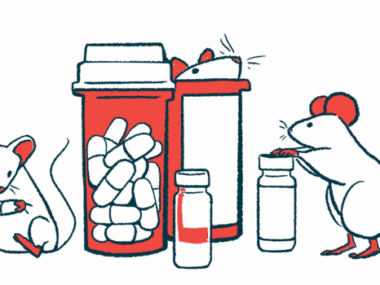AllStripes Asking Patients, Families to Share Health Records to Aid Research
Written by |

Sanfilippo syndrome patients and caregivers are being asked to help speed the development of potential disease treatments by joining AllStripes, and contributing their de-identified medical records to research efforts.
The San Francisco-based company, previously known as RDMD, uses its rare disease research platform to aggregate and analyze such information, and provides the data to scientists searching for new treatment candidates.
Rare disease patients and families can contribute to treatment research from home. AllStripes currently has participant openings for at least 18 conditions, including Sanfilippo. It’s seeking 75 participants for this program, and has 39 so far.
Those interested in joining can do so here.
“The traditional drug development process isn’t able to support the unique needs of rare diseases, which affect 1 in 10 people worldwide,” AllStripes states on its website. “Important information from patient medical records is often trapped in hospitals or kept private, inaccessible to researchers who need it. Patients often have limited visibility and influence over how their information is being used for research.”
Enrollees must provide contact information and a list of hospitals and doctors visited, and permit AllStripes to retrieve health information. AllStripes scrubs contributed patient data for identifiers, and the information then can be made available to research organizations, hospitals, and pharmaceutical companies.
Since the data is culled directly from medical records, it is reliable for research.
In exchange for data access, participants get their medical records organized into a free secure app they can use to track their treatment and research project contribution. They also can follow and possibly join new clinical trials. Patients can deactivate their accounts at any time.
Prospective participants who live in countries outside of the U.S. and Canada are subject to their country’s laws and policies, and AllStripes will work within them.
“We do hard work behind the scenes to ensure that patients’ de-identified medical information is as accessible, accurate and usable as possible for medical researchers, while putting patients in control of their own data,” the company states. “By leveraging modern technology and data science, we empower patients to remove the barriers to treatment development at every step of the way.”
The company also works on different research projects across each rare condition. Each project is tailored to help initiate and accelerate treatment development. For example, de-identified information may be used to conduct an in-depth natural history study to help researchers better design a clinical trial. Or, health records may be used to better understand treatment outcomes and how they relate to participants’ medical history.
AllStripes is currently working with the Cure Sanfilippo Foundation on a new study, for which it is recruiting Sanfilippo families. It will share more details as research progresses.
“AllStripes is bringing the community closer together and making doctors more aware,” Ashley, the mother of a Sanfilippo patient, states on the AllStripes’ website. “It’s very helpful for both patients and research.”
A company co-founder, Onno Faber, was diagnosed with the rare disease neurofibromatosis type 2 (Nf2) in 2015.
AllStripes is supported by private investors, it states, and “may work with trusted drug development companies who pay fees to request access to de-identified information.”




